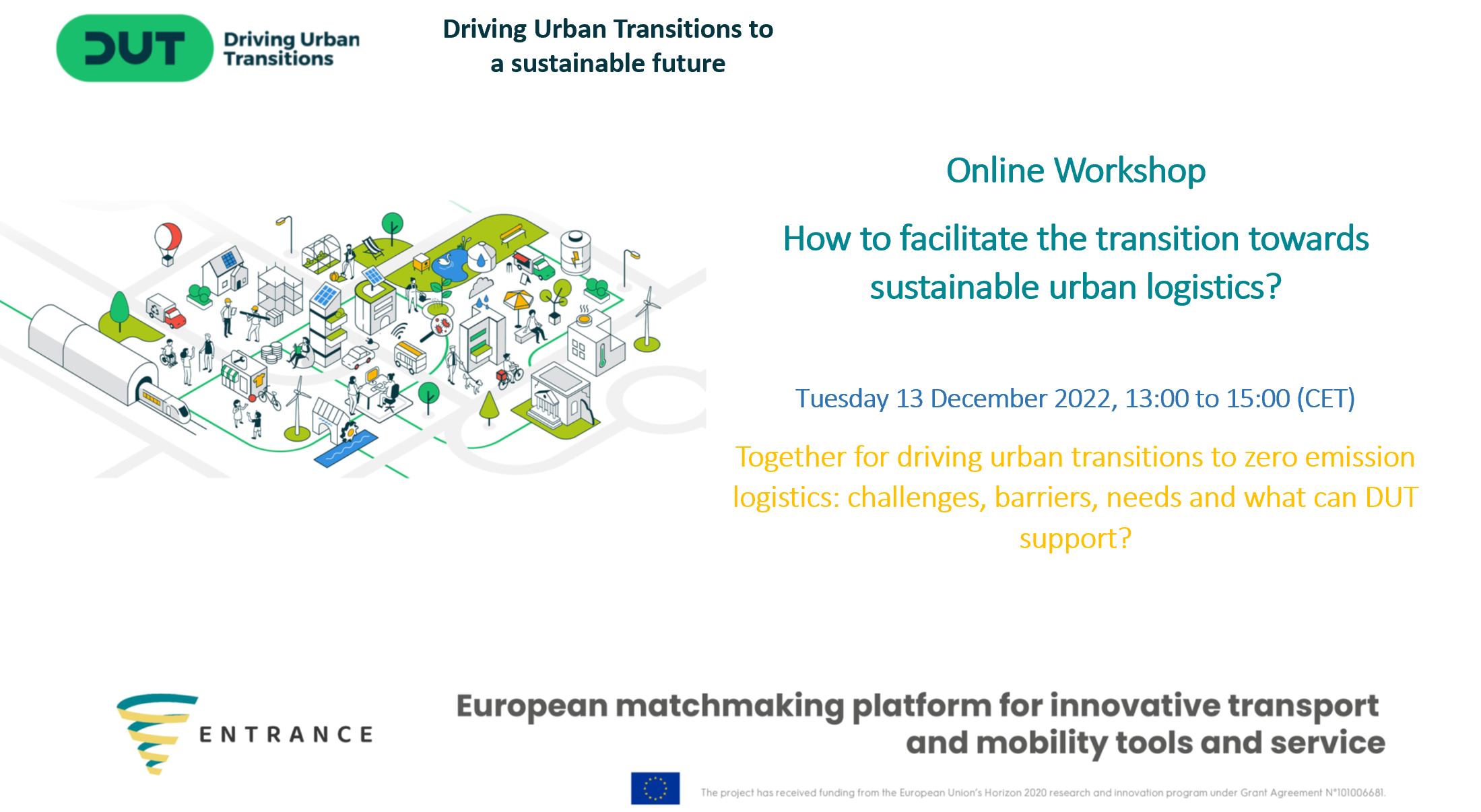Monday, November 28th, 2022

The DUT Partnership steps up the game to tackle urban challenges. Through research and innovation and capacity building, it enables local authorities and municipalities, service and infrastructure providers, and citizens to translate global strategies into local action. It develops the skills and tools to make urban change happen and boost the urgently needed urban transformations towards a sustainable future with enhanced quality of life in cities.
Objectives of this webinar:
Who should join: Anyone who is interested in implementation innovative logistics solutions in cities including but limited to:
Format of the workshop: The workshop will consist of presentations and group discussions. Presentations will provide examples of current practices for inspiring discussions. Participates will be divided into several groups and each of the group will consist of various stakeholders: city authorities, logistics practitioners, researchers etc. Each group will consist of about 12 participates and have a moderator to guide discussions report key outcomes. Participates will be automatically assigned into different groups. Online survey using SLIDO will be open during the workshop to collect additional inputs.
13:00 – 13:10 Welcome and Objectives of this workshop, by Jeanett Bolther, coordinator of the ENTRANCE project
13:10 – 13:20 Introduction of Driving Urban Transitions (DUT) Partnership, by Maximilian Jäger, DUT Coordinator of 15-minute City Transition Pathway
13:20 – 13:30 Good practices for Smart Governance and Regulation & Clean & alternative fleet:
13.30 – 13:55 Break-out session – Group discussion I: Zero Emission Urban Freight
13:55 – 14:15 Good practices for logistics operation, data acquisition, and consumer engagement:
14:15 – 14: 40 Break-out session – Group discussion II: Logistics operation, consumer engagement and data acquisition
14.40 – 15:00 Summary of Group discussions
15.00 Adjourn
 |
Activities performed in the frame of the ENTRANCE Project. The project has received funding from the European Union’s Horizon 2020 research and innovation program under Grant Agreement N°101006681 |